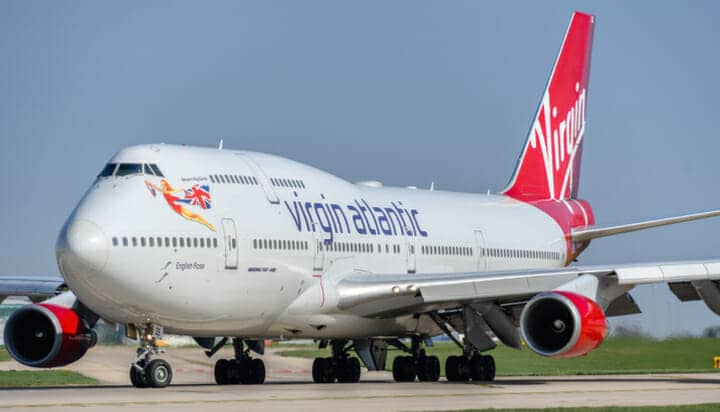The Virgin Group, which is taking part in various projects ranging from space exploration to transport solutions such as the Hyperloop One system, is now creating its innovative impression in the industry. The company also owns Virgin Atlantic and is driven by the strong commitment to emissions reduction. Virgin Atlantic recently announced its successful development of the world’s most sustainable aviation fuel. The fuel will be tested in the following month on a transatlantic flight from Orlando, Florida to London Gatwick on one of the company’s 747 jets. The 7000km long flight will serve as the perfect testing ground for the fuel.

The UK government understands importance of waste feedstocks for flight to help decarbonize and create a #carbonsmart aviation sector. With @VirginAtlantic and partners we look forward to realizing a commercial ATJ facility in the UK #futurefuelsforflight @transportgovuk https://t.co/ABvbLqYhS6
— LanzaTech (@LanzaTech) September 13, 2018
Virgin Atlantic has partnered with LanzaTech, a US-based company which uses innovative gas fermentation technology to recycle waste carbon produced at steel mills which exits the fuel stacks. Jet fuel is one of the many recycled products which can be created using this innovative process. The company’s mission is to put the foundation for a “‘carbon smart’ circular economy, both the gas providers and the end users can choose to be resource efficient by recycling or ‘sequestering’ carbon into new products rather than making them from new fossil resources.”
Once the project was given the green light, LanzaTech secured funding from the UK government for 410K pounds. Virgin Atlantic’s CEO, Craig Keeger, expressed his hopes of the project and said, “At Virgin Atlantic, we’ve been committed to reducing our carbon emissions for more than a decade. Along with more efficient aircraft and operational procedures, we know sustainable aviation fuels are a key next step in this journey. As LanzaTech’s long-time partner, we’re excited to be able to support building industrial capacity in the UK and look forward to our future flights being powered by this advanced, waste-based solution.”
Virgin Atlantic is hoping to bring change in the industry. UK Transport Secretary Chris Grayling showed his support for the project and talked about the impact on the aviation industry as well as the carbon footprint of the UK and in other countries as well. He said, “This waste to jet fuel project has the potential to help transform the aviation industry by reducing greenhouse gas emissions and improving the air quality around our country’s airports. Supporting important developments like this is just part of our work to help ensure our aviation sector is greener than ever, and we will explore further measures as part of our Aviation Strategy.”


